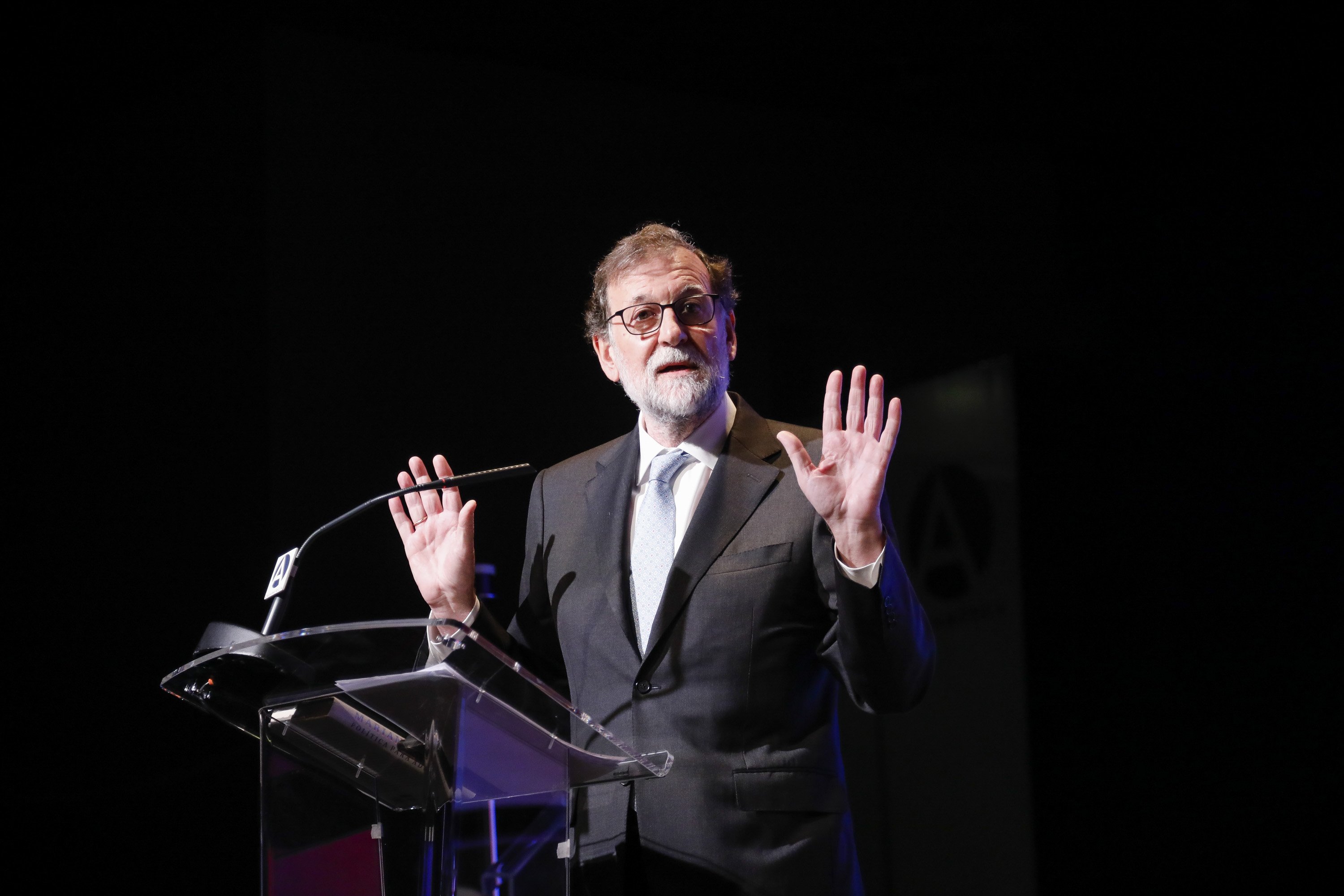Spanish justice has slammed the door on former prime minister Mariano Rajoy. An administrative disputes chamber of the Madrid High Court (TSJ Madrid) has agreed to lift an earlier-imposed interim injunction and thus give effect to the Batllia d'Andorra's 'letters rogatory', the international legal investigation measure requested by the justice system in the Pyrenean microstate, in order to investigate the former Spanish PM's role in the so-called Operation Catalonia affair in Andorra. As a a result of this decision, reported by the TSJ Madrid this Wednesday, the interim measures which had paused the inquiry have been lifted, and the court has already notified Rajoy along with his former minister Jorge Fernández Díaz that they are being investigated in Andorra and will need to appear through their legal counsel. Their argument, that their fundamental rights were being violated, was dismissed by the court. In the resolution, the court affirms that the arguments made by Rajoy are "generic and inconsistent invocations" and hence it refuses to stop the letters rogatory process on an interim basis. The full detail of its reasoning will be explained when its written ruling is released.
The Andorran letters rogatory
In June, the Andorran judge Stephanie García issued summonses as defendants to the former Spanish prime minister Mariano Rajoy, and ex-ministers Cristóbal Montoro and Jorge Fernández Díaz, as well as members of the former interior ministry leadership which initiated Operation Catalonia. The demand for the former Spanish politicians' investigation was made in November 2021 by the Andorran Human Rights Institute (IDHA) and the legal group Drets, who are conducting a public prosecution, in this court procedure based on the complaints by the ex-directors of Banca Privada d'Andorra (BPA). Rajoy and his ministers are accused of putting pressure on the Andorran government to favour the financial collapse of the BPA bank, at the same time as Spanish police in the so-called "patriotic brigade" were asking BPA directors to reveal confidential account information on Catalan politicians that it alleged were clients of the bank: Artur Mas, Oriol Junqueras and Jordi Pujol and his family.
- Why don't the Spanish prosecutors help Rajoy over Andorra?
- Rajoy's government "blatantly assaulted Andorran sovereignty", say plaintiffs
Under the 1959 international agreement on judicial cooperation, the Spanish justice ministry received this request for assistance to Andorra in order to inform Rajoy, the former ministers and police officers that they were subject to the complaint in Andorra, and to appoint lawyers to act for them in the neighbouring country. Nothing more for now. Rajoy and Fernández Díaz have attempted to block the move for fear that the next step will be a request for extradition if they do not want to go to Andorra voluntarily. The statements of the retired police commissioner Manuel Villarejo - also part of the patriotic police - allowed the investigation against the PP government to be reactivated.
Arguments made by Spanish state solicitors and public prosecutors
In the resolution, the TSJ Madrid explained that the state solicitors, who represent the current Spanish government, were opposed to Rajoy's appeal against the initial resolution by justice ministry officials on June 15th: "it is not appealable because it is not an administrative act", as the court informed the former PM, in addition to it being "a mere procedure". The public prosecutor was also opposed to blocking the collaboration with Andorra, assuring that the violation of fundamental rights alleged by Rajoy and Fernández Díaz was in reality an attempt to oppose the resolution of the two courts that had refused to stop the rogatory commission precisely because it was a mere procedure.
Now, the Madrid HIgh Court considers that Rajoy has not sufficiently developed the argument of a violation of the right to effective judicial protection and equal rights, which he alleged in his latest appeal to stop the Andorran investigation. It also specified that denying Andorra's letters rogatory would be "disruptive" given the accord on reciprocity between states derived from the 1959 Council of Europe convention on criminal judicial assistance.
Two policemen with diplomatic protection
In his argument, Rajoy had stated that the Spanish government had refused to allow two Spanish police officers to testify in the Andorran proceedings because they currently have "diplomatic protection". The court informs, however, that in the file "there is no differentiated action with respect to these policemen" over the same or similar events. That is to say, Rajoy "has not provided evidence or indications" and the TSJ Madrid for now refuses to block the sending of the response to Andorra, despite the fact that the judgment on its substantive position is pending.

